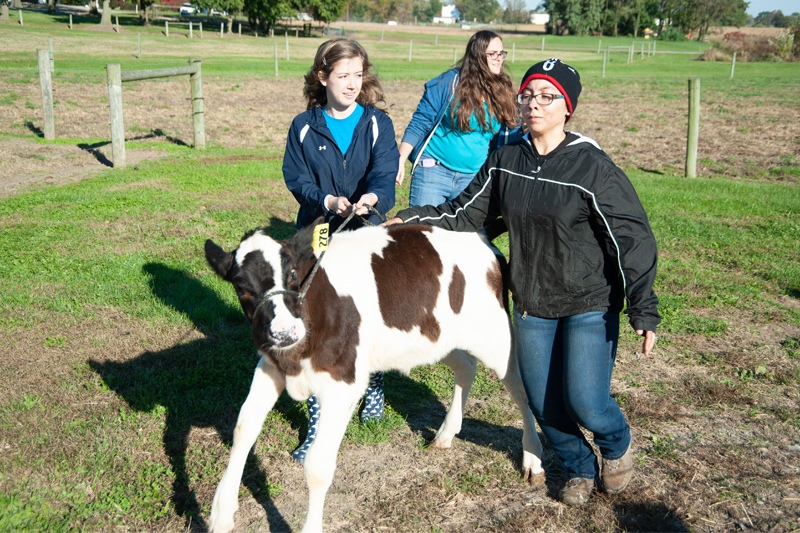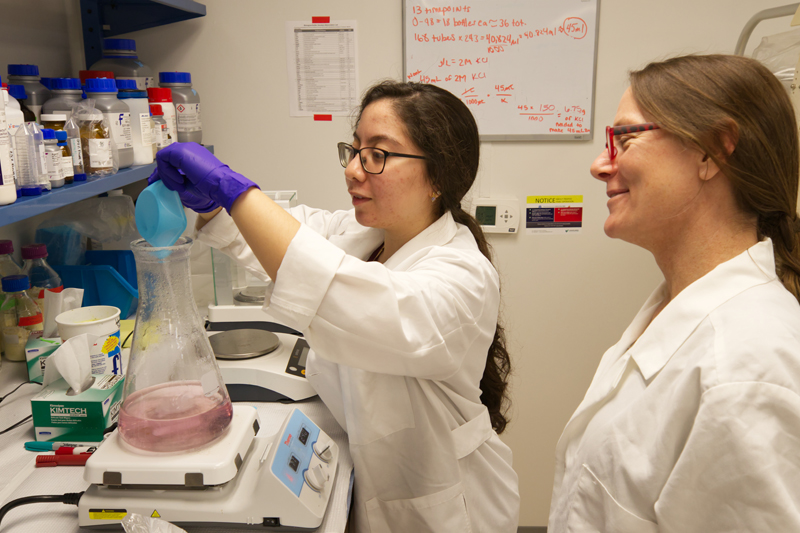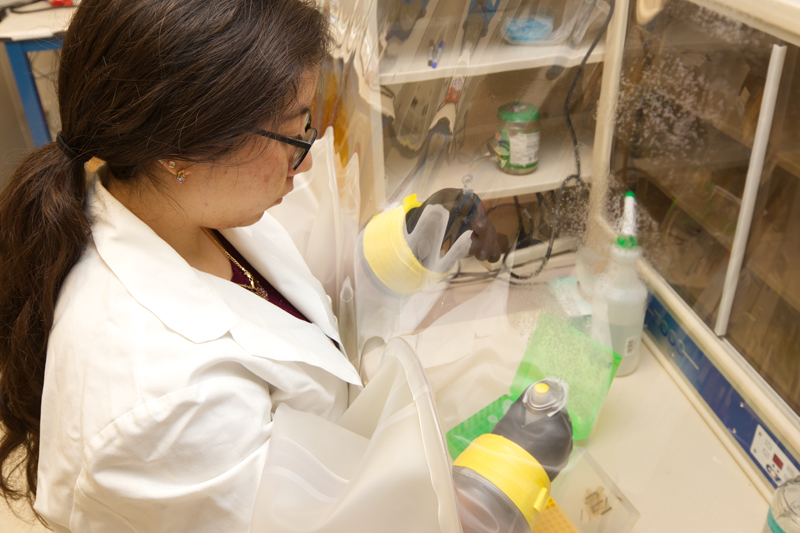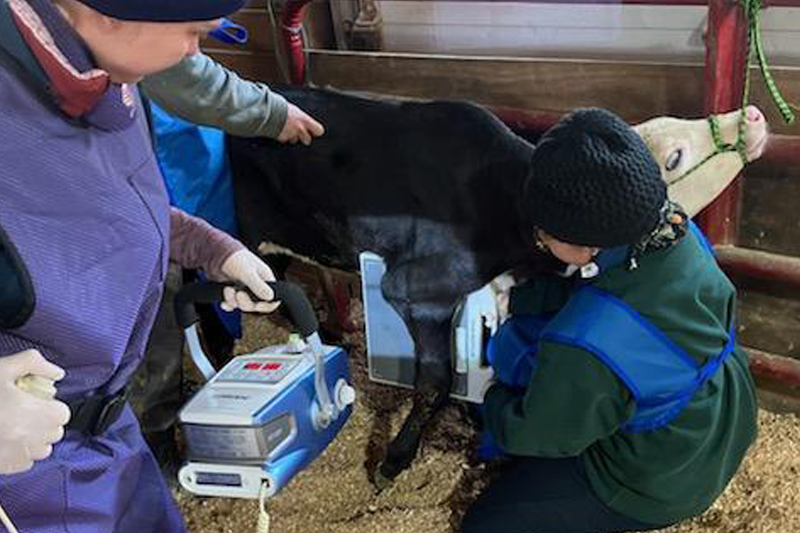


Success in veterinary school
Photos by Monica Moriak and courtesy of Giselle Garcia March 18, 2024
First graduate of non-thesis M.S. in Animal Science program credits her UD coursework with helping her through veterinary school
Gisselle Garcia is living her dream as she wakes early to attend an emergency calving with a team of veterinarians. The University of Delaware alumna is working an externship in northern New York, an essential step toward her ultimate goal of becoming a large animal veterinarian in the dairy industry. It’s not an environment she was born into.
“I grew up 10 minutes outside New York City,” Garcia said. “My first experience with large animals was at UD. It helped me to see veterinary work as something possible for me.”
A dedicated student, the UD honors alumna earned her bachelor’s degree in pre-veterinary medicine in 2019. She then continued her UD education, earning a non-thesis master’s in animal science in 2020. Two weeks after graduation, Garcia was in class at Mississippi State University College of Veterinary Medicine. She will graduate as a Doctor of Veterinary Medicine (DVM) this May.
Garcia’s first round of veterinary school applications did not produce the results she hoped for; she was waitlisted for admission. Her home state of New Jersey has no in-state vet schools, so Garcia was an out-of-state applicant everywhere she applied.
Undeterred, Garcia enrolled in UD’s non-thesis master’s in animal science with a concentration in business, entrepreneurship and leadership.
“I knew if I had a master’s, it would make me more competitive,” Garcia said.
The opportunity to continue working with Amy Biddle, associate professor of animal science, enticed Garcia to pursue her second UD degree. For her undergraduate thesis, Garcia worked in Biddle’s lab, assisting with research into the equine microbiome — the collection of all microbes, including bacteria, fungi and viruses that naturally occur in a horse’s gut.

While this research topic was familiar to Garica, her master’s research project was a new and challenging experience. Garcia studied the effect of three different drugs on the bacterial populations in equine microbiomes. The work included bioinformatics and bioanalysis of the data.
“The scale was challenging for me,” Garcia said. “But Professor Biddle was always there to support me, and she was willing to help. She provided many resources.”
Garcia loved the enthusiasm that her UD professors displayed in the classroom.
“My UD professors were excited to teach, and they went so in-depth with the material that some of my veterinary school classes felt like a broad overview,” she said.
Garcia credits her UD coursework with helping her through veterinary school. During her studies, Garcia has referenced notes from her master’s classes at UD. Comparative Histopathology (ANFS 640) with Erin Brannick and Immunology of Domestic Animals (ANFS 636) with Mark Parcells have been particularly helpful.
“If you are a UD graduate, you are set up for success,” Garcia said. “There is a strong alumni network, especially in veterinary medicine.”
The business, leadership and entrepreneurship concentration of UD's non-thesis animal science master’s program allowed Garcia to see veterinary work from different angles. Her classes discussed veterinarians’ relationships with practice owners, technicians, hospital staff and other veterinarians.

“It was invaluable,” Garcia said. “Relationships and power dynamics affect how you communicate with someone, understanding that can make you a more effective doctor.”
Power dynamics are top of mind for Garcia, who, at five feet tall, works with dairy cows weighing up to 1,500 pounds. The cows are 58 inches tall at the shoulder.
“You can get a bit of pushback,” said Garcia. “People think you need help doing the work because of your size. But they just haven’t seen what you can do yet.”
During her externship with North Star Veterinary Services, Garcia will observe the all-female team in action.
“It was important to me to learn from female veterinarians closer to my size,” Garcia said. “I want to observe how they do things because they’ve been in practice for a long time.”
After graduating from veterinary school, Garcia plans to work with large dairy producers treating cows. Eventually, she’d like a mixed practice with pets and livestock.
“I want to be the vet that if someone walks in the door with an animal, I can treat it,” she said.
Learn more about UD’s Department of Animal and Food Sciences graduate programs.

Contact Us
Have a UDaily story idea?
Contact us at ocm@udel.edu
Members of the press
Contact us at 302-831-NEWS or visit the Media Relations website

